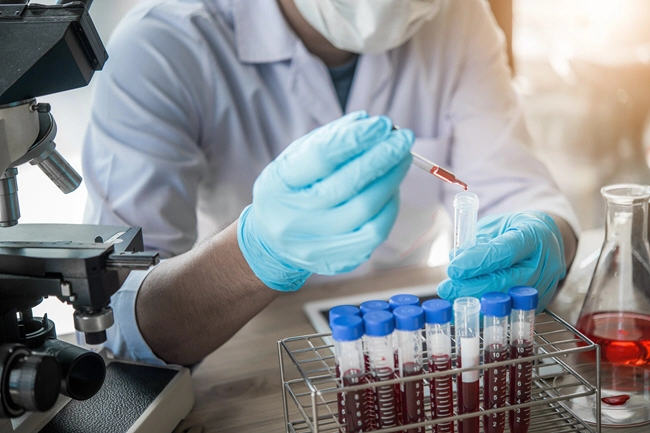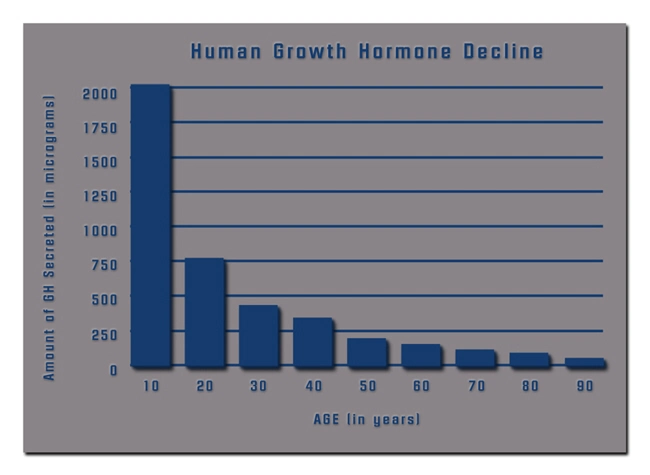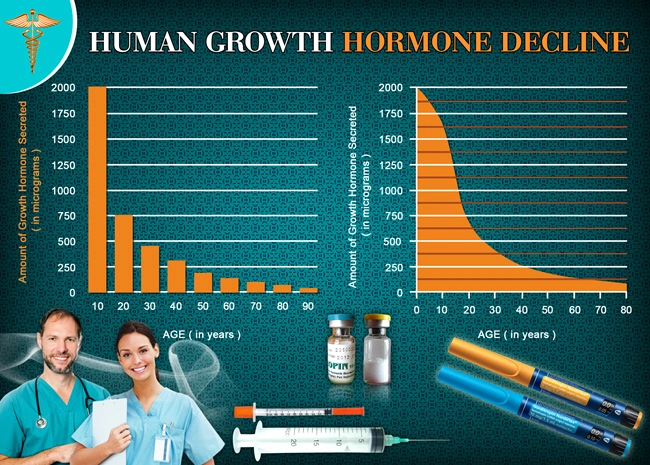
Introduction to Prostate Health
The prostate gland, a small but significant part of the male reproductive system, plays a crucial role in health and well-being. Located just below the bladder and in front of the rectum, the prostate produces seminal fluid that nourishes and transports sperm. As American men age, maintaining prostate health becomes increasingly important. This article aims to provide a detailed understanding of prostate health, its common issues, and the steps men can take to ensure optimal function.
Understanding Common Prostate Conditions
Several conditions can affect the prostate, with three being most prevalent among American men: benign prostatic hyperplasia (BPH), prostatitis, and prostate cancer. BPH is an enlargement of the prostate that can lead to urinary problems due to the pressure it exerts on the urethra. Prostatitis, an inflammation of the prostate, can cause pain and discomfort. Prostate cancer, the most serious of the three, is the second most common cancer among American men, with early detection significantly improving outcomes.
Symptoms and Signs to Watch For
Recognizing the symptoms of prostate conditions is vital for early intervention. Common signs include frequent urination, difficulty starting or stopping urination, weak urine stream, and a feeling of incomplete bladder emptying. More severe symptoms like blood in the urine or semen, and persistent pain in the lower back, hips, or thighs, may indicate a need for immediate medical attention. Men should be vigilant about these symptoms and consult healthcare providers if they persist.
The Importance of Regular Screening
Regular screening is essential for maintaining prostate health. The American Cancer Society recommends that men discuss prostate cancer screening with their healthcare provider at age 50, or earlier if they have a family history or are of African American descent. Screening typically involves a prostate-specific antigen (PSA) blood test and a digital rectal exam (DRE). These tests can help detect prostate cancer in its early stages when it is most treatable.
Lifestyle Choices and Prostate Health
Lifestyle plays a significant role in prostate health. A diet rich in fruits, vegetables, and whole grains, and low in red meat and high-fat dairy products, may reduce the risk of prostate issues. Regular physical activity, maintaining a healthy weight, and limiting alcohol consumption are also beneficial. Some studies suggest that certain supplements, like selenium and vitamin E, might be helpful, but men should consult their doctors before starting any new supplements.
Treatment Options for Prostate Conditions
Treatment for prostate conditions varies depending on the diagnosis. For BPH, medications that relax the bladder neck muscles or shrink the prostate can be effective. Prostatitis may be treated with antibiotics if it is bacterial, or with anti-inflammatory drugs and lifestyle changes if it is chronic. Prostate cancer treatment can range from active surveillance for slow-growing tumors to surgery, radiation, and hormone therapy for more aggressive cancers. Men should work closely with their healthcare providers to choose the most appropriate treatment plan.
Mental Health and Prostate Health
The psychological impact of prostate conditions should not be underestimated. Diagnoses like prostate cancer can lead to anxiety, depression, and changes in self-esteem. It's important for men to seek support from mental health professionals, support groups, and loved ones. Addressing mental health can improve overall well-being and enhance the effectiveness of medical treatments.
Conclusion: Taking Charge of Prostate Health
Prostate health is a critical aspect of overall health for American men. By understanding the common conditions, recognizing symptoms, undergoing regular screenings, making healthy lifestyle choices, and seeking appropriate treatment and support, men can take proactive steps to maintain their prostate health. Empowering oneself with knowledge and taking action can lead to a healthier, more fulfilling life.
Contact Us Today For A Free Consultation
Dear Patient,
Once you have completing the above contact form, for security purposes and confirmation, please confirm your information by calling us.
Please call now: 1-800-380-5339.
Welcoming You To Our Clinic, Professor Tom Henderson.

- Prostate Health in Aging American Men: Understanding Conditions and Maintaining Wellness [Last Updated On: March 4th, 2025] [Originally Added On: March 4th, 2025]
- Prostate Health: Key Foods to Reduce Cancer Risk and Promote Wellness [Last Updated On: March 17th, 2025] [Originally Added On: March 17th, 2025]
- Family History and Prostate Health: Understanding Genetic Risks and Early Detection [Last Updated On: March 18th, 2025] [Originally Added On: March 18th, 2025]
- Prostate Health and Heart Disease: Vital Connections for American Men's Health [Last Updated On: March 18th, 2025] [Originally Added On: March 18th, 2025]
- Prostate Cancer Survivorship: Navigating Life After Treatment for American Men [Last Updated On: March 19th, 2025] [Originally Added On: March 19th, 2025]
- Exercise Strategies for Enhancing Prostate Health in American Males [Last Updated On: March 19th, 2025] [Originally Added On: March 19th, 2025]
- Prostate Cancer's Psychological Impact on American Men: Diagnosis to Survivorship [Last Updated On: March 19th, 2025] [Originally Added On: March 19th, 2025]
- Prostate Cancer Screening: Balancing Benefits and Risks with Informed Decision-Making [Last Updated On: March 19th, 2025] [Originally Added On: March 19th, 2025]
- Prostate Health: Understanding Symptoms, Seeking Care, and Lifestyle Management [Last Updated On: March 20th, 2025] [Originally Added On: March 20th, 2025]
- Prostate Cancer Treatments: Understanding and Managing Side Effects in American Men [Last Updated On: March 20th, 2025] [Originally Added On: March 20th, 2025]
- Benign Prostatic Hyperplasia: Symptoms, Causes, and Management for American Men [Last Updated On: March 21st, 2025] [Originally Added On: March 21st, 2025]
- Chronic Stress and Prostate Health: Risks and Management Strategies for American Men [Last Updated On: March 21st, 2025] [Originally Added On: March 21st, 2025]
- Prostate Health: Risks, Diet, Exercise, and Early Detection Strategies for American Men [Last Updated On: March 21st, 2025] [Originally Added On: March 21st, 2025]
- Prostate Cancer's Impact on Fertility: Treatments and Preservation Strategies [Last Updated On: March 22nd, 2025] [Originally Added On: March 22nd, 2025]
- Exercise and Diet: Enhancing Prostate Health in American Males [Last Updated On: March 22nd, 2025] [Originally Added On: March 22nd, 2025]
- Alcohol Consumption's Impact on Prostate Health: Risks and Moderation Guidelines [Last Updated On: March 22nd, 2025] [Originally Added On: March 22nd, 2025]
- Radiation Therapy: A Key Treatment for Prostate Cancer in American Males [Last Updated On: March 22nd, 2025] [Originally Added On: March 22nd, 2025]
- Hormone Therapy's Role in Managing Prostate Cancer for American Men [Last Updated On: March 23rd, 2025] [Originally Added On: March 23rd, 2025]
- Vitamin D's Role in Prostate Health: Insights for American Males [Last Updated On: March 23rd, 2025] [Originally Added On: March 23rd, 2025]
- Prostate Cancer: Navigating Diagnosis and Support for American Men [Last Updated On: March 23rd, 2025] [Originally Added On: March 23rd, 2025]
- Immunotherapy Revolutionizing Prostate Cancer Treatment for American Men [Last Updated On: March 24th, 2025] [Originally Added On: March 24th, 2025]
- Pesticides and Prostate Health: Risks and Mitigation Strategies for American Males [Last Updated On: March 24th, 2025] [Originally Added On: March 24th, 2025]
- Active Surveillance: Managing Low-Risk Prostate Cancer in American Men [Last Updated On: March 24th, 2025] [Originally Added On: March 24th, 2025]
- Targeted Therapy: A New Hope in Prostate Cancer Treatment for American Men [Last Updated On: March 24th, 2025] [Originally Added On: March 24th, 2025]
- Avoiding Key Foods to Maintain Prostate Health in American Men [Last Updated On: March 24th, 2025] [Originally Added On: March 24th, 2025]
- Brachytherapy: Targeted Treatment for Prostate Cancer in American Men [Last Updated On: March 25th, 2025] [Originally Added On: March 25th, 2025]
- HIFU: A Promising Non-Invasive Treatment for Prostate Cancer in American Men [Last Updated On: March 25th, 2025] [Originally Added On: March 25th, 2025]
- Omega-3 Fatty Acids: A Key to Prostate Health in American Males [Last Updated On: March 25th, 2025] [Originally Added On: March 25th, 2025]
- Proton Therapy: A Targeted Approach to Prostate Cancer Treatment in American Men [Last Updated On: March 25th, 2025] [Originally Added On: March 25th, 2025]
- Chemotherapy's Role and Impact on American Men with Prostate Cancer [Last Updated On: March 25th, 2025] [Originally Added On: March 25th, 2025]
- Antioxidants and Prostate Health: A Comprehensive Guide for American Men [Last Updated On: March 25th, 2025] [Originally Added On: March 25th, 2025]
- Sleep Quality's Impact on Prostate Health: A Vital Connection for American Men [Last Updated On: March 25th, 2025] [Originally Added On: March 25th, 2025]
- Environmental Factors and Their Impact on Prostate Health in American Males [Last Updated On: March 25th, 2025] [Originally Added On: March 25th, 2025]
- Lycopene: A Key Nutrient for Prostate Health in American Men [Last Updated On: March 25th, 2025] [Originally Added On: March 25th, 2025]
- Prostate Cancer Stages and Grades: A Comprehensive Guide for American Men [Last Updated On: March 25th, 2025] [Originally Added On: March 25th, 2025]
- Chronic Inflammation's Impact on Prostate Health in American Males: Prevention and Awareness [Last Updated On: March 25th, 2025] [Originally Added On: March 25th, 2025]
- Heavy Metals and Prostate Health: Risks, Impacts, and Preventive Measures [Last Updated On: March 25th, 2025] [Originally Added On: March 25th, 2025]
- CyberKnife: Advanced Non-Invasive Treatment for Prostate Cancer in American Men [Last Updated On: March 26th, 2025] [Originally Added On: March 26th, 2025]
- Prostate and Bone Health: Vital Connections and Management Strategies for American Men [Last Updated On: March 26th, 2025] [Originally Added On: March 26th, 2025]
- Palliative Care's Vital Role in Enhancing Prostate Cancer Patients' Quality of Life [Last Updated On: March 27th, 2025] [Originally Added On: March 27th, 2025]
- Hydration's Vital Role in Prostate Health for American Males [Last Updated On: March 27th, 2025] [Originally Added On: March 27th, 2025]
- Prostate Cancer and Cryotherapy: A Minimally Invasive Treatment Option for American Men [Last Updated On: March 27th, 2025] [Originally Added On: March 27th, 2025]
- Vitamin E's Role in Prostate Health: Benefits and Considerations for American Males [Last Updated On: March 27th, 2025] [Originally Added On: March 27th, 2025]
- Photodynamic Therapy: A Promising, Less Invasive Treatment for Prostate Cancer in American Men [Last Updated On: March 27th, 2025] [Originally Added On: March 27th, 2025]
- Selenium's Role in Prostate Health: Benefits and Dietary Sources [Last Updated On: March 28th, 2025] [Originally Added On: March 28th, 2025]
- Plastics' Impact on Prostate Health: BPA, Phthalates, and Preventive Measures [Last Updated On: March 28th, 2025] [Originally Added On: March 28th, 2025]
- Zinc's Vital Role in Prostate Health for American Males: Benefits and Sources [Last Updated On: March 28th, 2025] [Originally Added On: March 28th, 2025]
- Green Tea Benefits for Prostate Health in American Males: Prevention and Management [Last Updated On: March 28th, 2025] [Originally Added On: March 28th, 2025]
- Chemoprevention Strategies for Prostate Cancer Prevention in American Men [Last Updated On: March 28th, 2025] [Originally Added On: March 28th, 2025]
- Air Pollution's Impact on Prostate Health: Risks and Mitigation Strategies [Last Updated On: March 29th, 2025] [Originally Added On: March 29th, 2025]
- Prostate Cancer Management: Understanding Watchful Waiting for Low-Risk Patients [Last Updated On: March 30th, 2025] [Originally Added On: March 30th, 2025]
- Prostate Cancer Surgery: Understanding Radical Prostatectomy and Its Impact [Last Updated On: March 31st, 2025] [Originally Added On: March 31st, 2025]
- Cruciferous Vegetables: Enhancing Prostate Health in American Males [Last Updated On: April 1st, 2025] [Originally Added On: April 1st, 2025]
- EMF Exposure and Prostate Health: Risks and Mitigation Strategies for American Males [Last Updated On: April 2nd, 2025] [Originally Added On: April 2nd, 2025]
- Robotic Surgery for Prostate Cancer: Benefits, Procedure, and Recovery Insights [Last Updated On: April 4th, 2025] [Originally Added On: April 4th, 2025]
- Focal Therapy: A Promising, Less Invasive Option for Prostate Cancer in American Men [Last Updated On: April 4th, 2025] [Originally Added On: April 4th, 2025]
- Endocrine Disruptors and Prostate Health: Risks and Mitigation Strategies for American Males [Last Updated On: April 7th, 2025] [Originally Added On: April 7th, 2025]
- Laparoscopic Surgery: A Minimally Invasive Option for Prostate Cancer Treatment [Last Updated On: April 8th, 2025] [Originally Added On: April 8th, 2025]
- Salvage Therapy: A Critical Approach to Managing Prostate Cancer in American Men [Last Updated On: April 8th, 2025] [Originally Added On: April 8th, 2025]
- Industrial Chemicals' Impact on Prostate Health: Risks and Prevention Strategies [Last Updated On: April 8th, 2025] [Originally Added On: April 8th, 2025]
- Flaxseed Benefits for Prostate Health: Cancer Prevention and BPH Relief [Last Updated On: April 10th, 2025] [Originally Added On: April 10th, 2025]
- Soy Isoflavones: A Dietary Approach to Enhancing Prostate Health in American Males [Last Updated On: April 10th, 2025] [Originally Added On: April 10th, 2025]
- Prostate Health Management: Balancing Pharmaceuticals and Quality of Life in American Males [Last Updated On: April 10th, 2025] [Originally Added On: April 10th, 2025]
- Pomegranate's Role in Enhancing Prostate Health: Nutritional Benefits and Research Insights [Last Updated On: April 12th, 2025] [Originally Added On: April 12th, 2025]
- Palliative Surgery for Advanced Prostate Cancer: Benefits, Risks, and Holistic Care [Last Updated On: April 12th, 2025] [Originally Added On: April 12th, 2025]
- Neoadjuvant Therapy in Prostate Cancer: Benefits, Side Effects, and Future Directions [Last Updated On: April 12th, 2025] [Originally Added On: April 12th, 2025]
- Adjuvant Therapy in Prostate Cancer: Enhancing Outcomes and Quality of Life [Last Updated On: April 13th, 2025] [Originally Added On: April 13th, 2025]
- Bisphosphonates: Enhancing Bone Health in Metastatic Prostate Cancer Management [Last Updated On: April 13th, 2025] [Originally Added On: April 13th, 2025]
- Denosumab: A Promising Treatment for Prostate Cancer in American Men [Last Updated On: April 14th, 2025] [Originally Added On: April 14th, 2025]
- RANK Ligand Inhibitors: A Promising Therapy for Prostate Cancer Bone Metastases [Last Updated On: April 15th, 2025] [Originally Added On: April 15th, 2025]
- Heavy Physical Work's Impact on Prostate Health: Risks and Mitigation Strategies [Last Updated On: April 15th, 2025] [Originally Added On: April 15th, 2025]
- Radium-223: A Targeted Therapy for Advanced Prostate Cancer in American Men [Last Updated On: April 16th, 2025] [Originally Added On: April 16th, 2025]
- Abiraterone: Revolutionizing Prostate Cancer Treatment in American Men [Last Updated On: April 16th, 2025] [Originally Added On: April 16th, 2025]
- Enzalutamide: A Key Advance in Prostate Cancer Treatment for American Men [Last Updated On: April 16th, 2025] [Originally Added On: April 16th, 2025]
- Ginger's Role in Supporting Prostate Health: Benefits and Dietary Integration [Last Updated On: April 16th, 2025] [Originally Added On: April 16th, 2025]
- Turmeric's Potential Benefits for Prostate Health in American Males [Last Updated On: April 17th, 2025] [Originally Added On: April 17th, 2025]
- Shift Work's Impact on Prostate Health: Risks and Mitigation Strategies for American Males [Last Updated On: April 18th, 2025] [Originally Added On: April 18th, 2025]
- Prostate Health Risks and Mitigation Strategies for Long-Haul Truckers [Last Updated On: April 19th, 2025] [Originally Added On: April 19th, 2025]
- Prostate Cancer: Symptoms, Diagnosis, Treatment, and Prevention Strategies for Men [Last Updated On: April 21st, 2025] [Originally Added On: April 21st, 2025]
- Prostate Health: Importance of Regular Check-Ups for Men Over 50 [Last Updated On: April 23rd, 2025] [Originally Added On: April 23rd, 2025]








